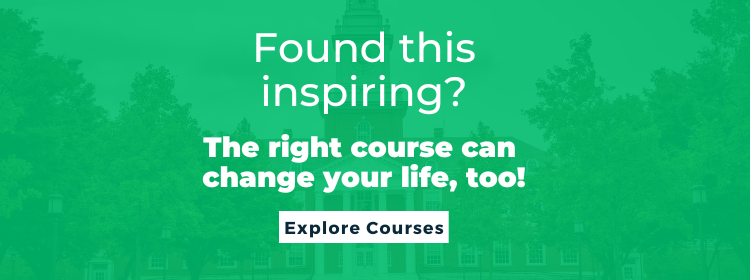Wondering How to Effectively Measure Soft Skills? This Guide Can Help!

An individual’s social intelligence determines how they interact with their environment and the people around them. In the workplace, social intelligence is also defined as soft skills and it is a critical tool to measure one’s potential. These skills contribute significantly to teamwork, management, communication, and competence. The global soft skills training market reached a value of USD 23.64 billion in 2021, according to the latest report drafted by the IMARC Group. With such skyrocketing demand, it is essential to accurately measure soft skills while recruiting new hires. This is where it gets tricky.
While it is relatively easy to subject job-seekers to objective tests that measure their technical expertise, employers have a hard time assessing soft skills. Personality attributes, such as motivation, communication, critical thinking, problem-solving, and conflict resolution don’t have direct cause-and-effect outcomes and are intangible and unquantifiable.
Importance of Measuring Soft Skills
In a digital and AI-powered world, the importance of soft skills over hard skills is clear as day. In addition to job success, soft skills are immensely helpful in determining Return on Investment (ROI). They affect worker retention rates of a company, as more often than not, a technically sound hire may not be equipped with the right set of soft skills and may fail to perform. Furthermore, the World Economic Forum’s ‘Future of Jobs’ report highlights that by 2025, critical thinking, complex problem-solving, people management, emotional intelligence, and creativity will gain immense precedence in the workplace.
Let’s break that down a little more. As difficult as it may be, it is imperative to measure the soft skills of a potential employee. Everybody claims to be an effective communicator, and phrases such as “excellent negotiation skills” and “time-management” are easily added in black and white on a resume. The reality, however, paints a contrasting picture. In the present day, where technology powers our lives, soft skills are as sorely lacking as they are salient. And this is what drives employers to assess soft skills while hiring.
Most employers are willing to train hires on technical expertise but they prefer candidates with a solid set of soft skills. Put simply, you can teach someone Adobe Photoshop. But how do you train them in active listening? Also, data and insights from soft skill assessments positively impact the processes of recruitment and retention and lead to an involved talent pool within the organization. This, in turn, gives organizations a definitive edge over competitors.
Who Needs to Measure Soft Skills?
While measuring soft skills is an essential step in the hiring process, it is also useful for job-seekers to test their own soft skills to gauge where they stand in the competition. We may fall into the trap of overestimating ourselves when it comes to basic competencies, such as communication, teamwork, or leadership. Due to this, soft skill measuring tools are a convenient way of assessing our own strengths and weaknesses and applying for jobs best suited to our aptitude.
How Recruiters Can Measure Soft Skills
Measuring soft skills comprehensively is a well-thought-out process involving multiple steps. While soft skills are universal and applicable across disciplines and roles, certain jobs require a specific skill set. For instance, a client-facing role demands greater communication skills than creative problem-solving skills. To conduct an assessment, therefore, employers must identify the soft skill requirements of a job role.
The next step involves online prescreening where tech takes some of the load off your shoulders. Prescreening tools are easily incorporated into online applications, such as situational questions or neuroscience-inspired games, the results of which are analyzed using the software’s algorithm.
While measuring the soft skills of a potential hire, employers must be mindful of unconscious bias. For example, a candidate who reminds you of your favorite TEDx speaker may not be well-suited to the role. Implicit biases are particularly harmful as once the initial favor sets it, employers are likely to focus on traits that corroborate that bias. In technical terms, this is known as confirmation bias.
It’s also important to standardize your questions across interviews. While behavioral or situational interview questions are effective in measuring soft skills, they must be consistent among candidates. This ensures that every candidate is presented with the opportunity to prove themselves, making it easier for employers to compare the responses.
Along with situational questions, problem-solving questions are a way to assess soft skills. With the help of such questions, recruiters can gauge a candidate’s troubleshooting capability, level-headedness, and attitude towards change. Providing feedback throughout the process also determines how the candidate incorporates the same and offers a broader overview of their receptivity and aptitude for collaborative tasks.
Skill-Assessment Tools for Professionals
In order to measure soft skills, we must be aware of the end result we are trying to achieve. Job-seekers themselves must be able to identify the specific skill they wish to test and how relevant it is to the position they are applying for. A simple Internet search will throw up several soft skill measuring tools, most of which are free of cost, comprehensive, and packed with insights on the finer nuances of the particular skill being assessed.
Some of these Tools Include:
- EdApp: A free, cloud-based authoring tool with over 80 customizable templates, EdApp is one of the strongest tools in the market. It takes a microlearning approach to skill-testing and complements the same with games, quizzes, analytics, and rewards.
- Skills Base: Another excellent tool for measuring soft skills, Skills Base is also free of cost and comprises custom rating criteria for skills assessment. It employs a self-assessment feature to highlight one’s strengths and weaknesses and is immensely helpful in tracking an individual’s progress.
- Brilliant Assessment: This is a highly customizable assessment tool that consists of an intelligent scoring algorithm, personalized brand reports, and feedback, thus providing accurate and detailed results. Furthermore, these assessments have a wide variety of uses, from content marketing and employee exams to cybersecurity and risk assessment.
- Kahoot!: Kahoot! is a game-based skill assessment tool that uses appealing visuals and gamification to foster engagement and mobile learning. Along with multiple-choice questions, it comprises a ‘type answer’ feature that allows users to expand on specific topics. Available in free as well as paid versions, Kahoot! Greatly encourages synchronous learning through its multi-player option.
Methods to Measure Soft Skills
Over time, researchers and experts have developed certain tools that provide a fairly accurate estimate of one’s soft skills. These include:
-
Self-Assessment Tools
Also known as self-reporting tools that act as indicators of soft skills such as communication, empathy, teamwork, and problem-solving. They are most commonly disseminated in the form of surveys and questionnaires.

-
360-Degree Feedback
Such feedback instruments are employed to receive inputs from those who interact most frequently with the subject. Feedback tools offer great insight and can be extremely effective in measuring soft skills.
-
Employee Engagement Survey
These surveys measure how committed employees are to their manager which, in turn, reflects on the manager’s ability to foster healthy workplace dynamics.
-
Creating Definitive Rubrics
As soft skills are difficult to test, creating exhaustive rubrics that define exceptional, acceptable, and unacceptable degrees of soft skills helps employers evaluate candidates’ responses to a soft skill assessment.
Establishing a company culture is now more important than ever. This is where soft skills play a crucial role as they determine the talent pool of the organization. Gaps in measuring soft skills weaken the recruitment process, thus ultimately impacting the retention rate of the company. Evidently, soft skills can make or break a company culture. In this regard, soft skill assessment is perhaps more important than testing for technical expertise. If done right and diligently, a holistic hiring process that accounts for soft skill evaluation is sure to reap great rewards and significantly strengthen a business’ position in a fluctuating and volatile market.
Are you looking to explore a wide range of courses on Emeritus? Check out the entire portfolio here.
By Deyasini Chatterjee
Write to us at content@emeritus.org



